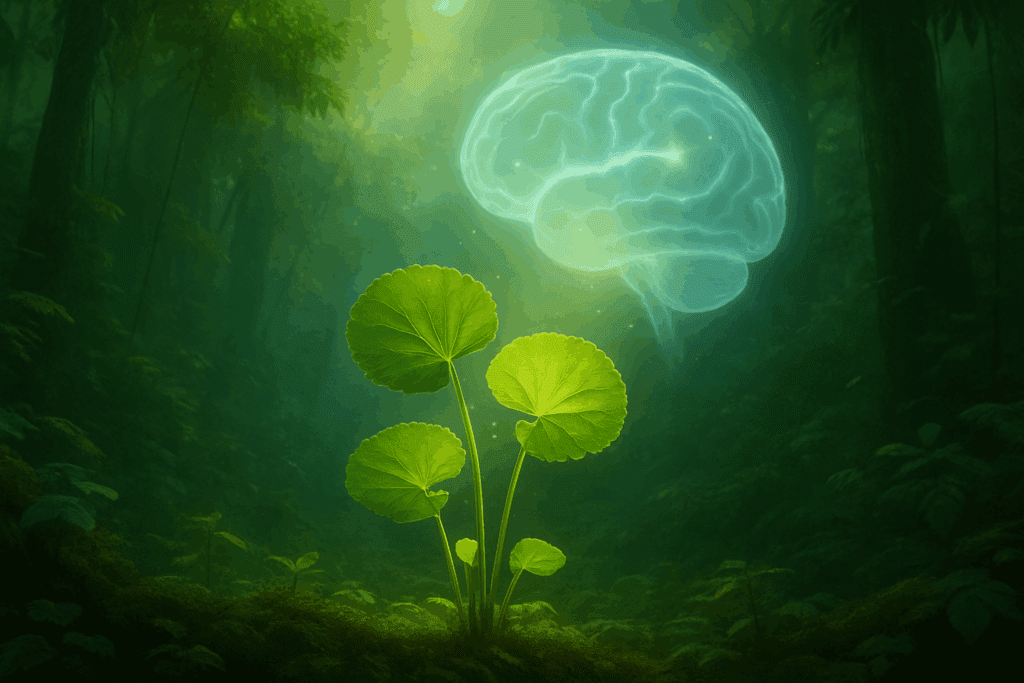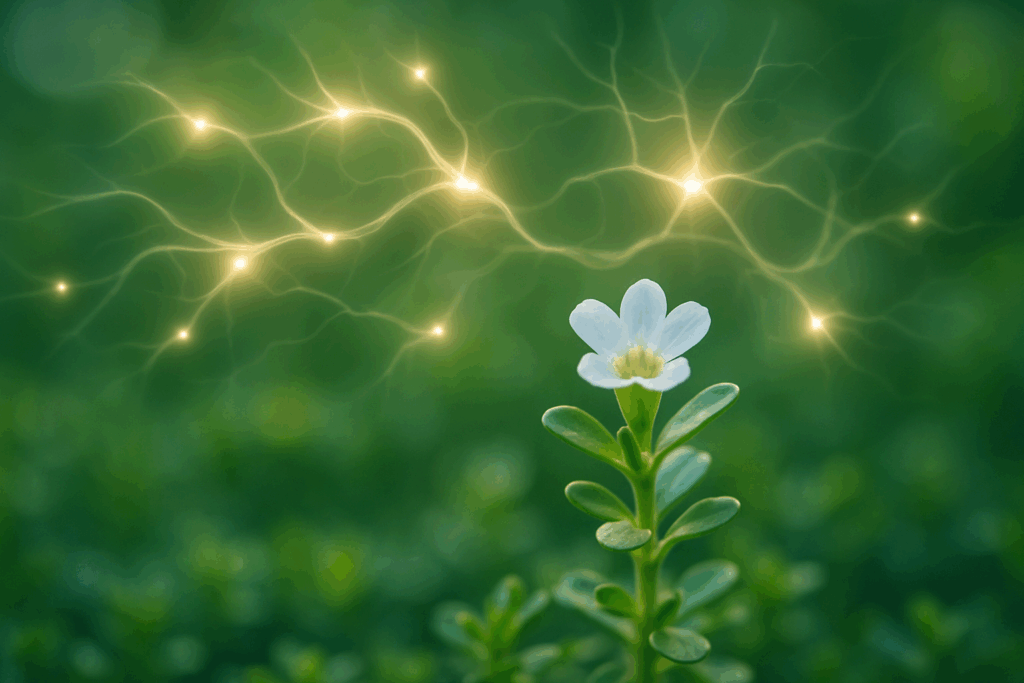In a world increasingly saturated with distractions, the pursuit of mental clarity and focused attention has become more than a personal goal—it’s a societal necessity. For women with Attention Deficit Hyperactivity Disorder (ADHD), this challenge is not simply a matter of willpower or time management; it’s a neurobiological reality that affects cognitive function, emotional regulation, and daily productivity. While pharmaceutical interventions like stimulants remain a cornerstone of conventional treatment, many women are exploring complementary therapies, including herbal remedies, to support cognitive function in ways that feel more natural and personalized. This article takes a comprehensive look at the best herbs for ADHD, focusing on their potential to enhance focus in women while addressing the unique neurocognitive and hormonal dynamics at play. Grounded in scientific literature and guided by the principles of EEAT (Experience, Expertise, Authoritativeness, and Trustworthiness), this in-depth exploration also weaves in the science of memory, including the nuanced relationships between age-related memory loss, short term memory impairment, and how lifestyle and nutrition may affect cognitive health.
You may also like: Best Herb for ADHD Support: How Natural Remedies and Herbs for ADHD Women May Help Boost Focus and Calm
Understanding ADHD in Women: A Distinct Neurocognitive Profile
ADHD has long been underdiagnosed in women, partly due to its more subtle presentations compared to the hyperactivity-dominant form commonly seen in boys. Women with ADHD often exhibit inattentiveness, forgetfulness, emotional sensitivity, and executive dysfunction—symptoms that can be easily mistaken for anxiety or mood disorders. Moreover, the hormonal fluctuations associated with menstruation, pregnancy, and menopause can exacerbate ADHD symptoms, making focus and memory retention even more challenging.
These cognitive symptoms frequently overlap with broader issues of memory. Many women with ADHD ask themselves, “Why is my memory so bad?” or report experiences such as “why do I keep forgetting things?” and “why am I forgetting things all of a sudden?” These are not uncommon questions, particularly when short term memory loss or short term memory impairment begins to affect daily routines. While these experiences can sometimes be attributed to hormonal shifts or stress, they can also point to deeper neurological patterns common in women with ADHD. Understanding these interrelated dynamics is essential when considering herbal interventions.

Herbal Medicine as Cognitive Support: Tradition Meets Science
The use of herbs to support cognitive function is not new. From Traditional Chinese Medicine to Ayurvedic practices, natural botanicals have long been used to enhance focus, reduce stress, and improve memory. However, modern science is only beginning to validate and understand the mechanisms behind these ancient practices. This convergence of traditional knowledge and contemporary research creates a promising avenue for women seeking holistic support for ADHD.
Importantly, while herbs cannot replace clinical ADHD treatments in severe cases, they may serve as effective adjunctive strategies—especially when used to complement behavioral therapies, mindfulness practices, and nutritional interventions. For women experiencing symptoms like short memory loss or asking questions like “what causes memory loss and forgetfulness?”, certain herbs may not only support attention regulation but also address underlying mechanisms of cognitive decline.
Bacopa Monnieri: The Ayurvedic Ally for Focus and Memory
Among the most studied herbs for cognitive enhancement is Bacopa monnieri, a staple of Ayurvedic medicine known for its nootropic properties. This adaptogenic herb has shown potential in supporting memory retention, improving attention span, and reducing anxiety—a particularly relevant benefit for women with ADHD who often grapple with overlapping anxiety symptoms.
Clinical studies have highlighted Bacopa’s ability to support working memory and reduce the rate of forgetting, which may be particularly useful for those experiencing short term memory loss. For example, one double-blind, placebo-controlled study published in Psychopharmacology demonstrated that Bacopa improved memory performance and the speed of visual information processing in healthy adults. This is promising for women who frequently ask, “why am I so forgetful?” or struggle with what is considered normal aging memory loss.
Bacopa’s effects are thought to stem from its ability to enhance synaptic communication, support antioxidant defenses in the brain, and modulate neurotransmitters such as serotonin and dopamine—both of which play key roles in ADHD and emotional regulation. These mechanisms are not only critical for supporting focus but also for addressing symptoms like short term memory loss in seniors and those concerned about lost memory due to aging or hormonal transitions.

Ginkgo Biloba: Enhancing Cerebral Circulation and Neural Plasticity
Ginkgo biloba is another well-researched herb with a long history of use in traditional medicine for cognitive support. It is particularly valued for its role in enhancing blood flow to the brain, thereby improving oxygen delivery and nutrient transport to neuronal tissues. For women who experience symptoms of short term memory impairment or worry about age related memory loss, Ginkgo may offer a natural strategy to bolster cognitive resilience.
Several randomized controlled trials have examined Ginkgo’s impact on memory and executive function. Notably, a meta-analysis published in the Journal of Psychopharmacology found that Ginkgo extract significantly improved attention and memory in individuals with cognitive impairment. This suggests potential benefits for individuals asking, “is memory loss a normal part of aging?” or “what is normal age related memory loss?”
Moreover, Ginkgo’s antioxidant and anti-inflammatory properties may help mitigate the oxidative stress associated with aging and neurodegenerative conditions. This is particularly relevant for those exploring how to reverse memory loss in the elderly or differentiate between forgetfulness vs dementia. For women navigating hormonal changes, brain fog, or questions like “why do I have a terrible memory?”, Ginkgo may serve as both a preventive and supportive botanical.
Rhodiola Rosea: Combating Fatigue and Mental Burnout
While not traditionally associated with ADHD, Rhodiola rosea is gaining attention for its ability to support mental endurance and reduce fatigue. For women with ADHD who experience executive dysfunction and mental exhaustion, this adaptogen may offer a much-needed boost. Rhodiola works by modulating the stress response, balancing cortisol levels, and enhancing neurotransmitter activity in the brain.
Fatigue and burnout are common triggers for cognitive lapses. Many people associate mental tiredness with increased forgetfulness and start to wonder, “why am I forgetting things all of a sudden?” In such cases, Rhodiola’s ability to restore cognitive function under stress becomes particularly valuable. While not a memory herb in the classical sense, its indirect support for cognitive stamina can help prevent episodes of short term memory loss due to mental overload.
Furthermore, Rhodiola may play a preventative role in more serious memory conditions by preserving mitochondrial function and reducing oxidative stress—two factors implicated in aging and memory loss. For women juggling multiple roles, from work to caregiving, this herb provides a natural way to maintain cognitive clarity and mental energy.

Lion’s Mane Mushroom: Neurogenesis and Cognitive Renewal
A less conventional but increasingly popular option among herbs and natural supplements for ADHD is Lion’s Mane mushroom (Hericium erinaceus). This medicinal fungus is revered for its neuroregenerative properties, particularly its ability to stimulate nerve growth factor (NGF) production—a key protein involved in the maintenance and regeneration of neurons.
For women experiencing symptoms such as short memory loss or wondering whether forgetting names is a sign of dementia, Lion’s Mane offers a unique mechanism of action. Unlike other herbs that primarily support neurotransmitter balance or blood flow, Lion’s Mane promotes actual structural changes in the brain. This makes it especially valuable for those seeking to counteract age related memory loss or investigate the difference between dementia and amnesia.
Several animal and preliminary human studies have demonstrated Lion’s Mane’s capacity to enhance memory, improve learning, and reduce symptoms of cognitive decline. As research advances, it may soon become a central herb in protocols designed to support memory loss in seniors and mitigate signs of early cognitive deterioration.
Gotu Kola: Ancient Tonic for Modern Mental Fatigue
Gotu kola (Centella asiatica) is a lesser-known but deeply respected herb in traditional Eastern medicine. Often referred to as “food for the brain,” Gotu kola has been used for centuries to promote clarity, memory, and mental longevity. Its cognitive benefits are believed to stem from its ability to enhance circulation, reduce anxiety, and modulate brain-derived neurotrophic factor (BDNF), a protein vital for learning and memory.
In the context of ADHD, Gotu kola may help reduce mental scatter and enhance the brain’s ability to retain and retrieve information. This is particularly beneficial for individuals asking, “what causes memory loss and forgetfulness?” or seeking clarity on who is most likely to have memory difficulties. Its adaptogenic qualities make it well-suited for women navigating stress-induced cognitive fatigue or experiencing short term memory loss in old age.
Studies have shown that Gotu kola supplementation can improve working memory, reduce anxiety, and support cognitive function in older adults. This dual action—supporting focus and protecting memory—makes it an excellent choice for those balancing ADHD symptoms and concerns about cognitive aging.

Frequently Asked Questions: Best Herbs for ADHD and Memory Support in Women
1. Can herbal supplements help prevent short term memory loss in women with ADHD?
Yes, certain herbal supplements show potential for addressing short term memory loss in women with ADHD. While not a cure, herbs like Bacopa monnieri and Ginkgo biloba may support memory retention and cognitive resilience by improving neural communication and circulation. In some cases, short term memory impairment may stem from stress, hormonal fluctuations, or overstimulation—factors these herbs may help regulate. For women asking, “why is my memory so bad?” herbal support combined with lifestyle changes may offer a multifaceted approach. While results vary, using evidence-based herbs may prevent what some refer to as “short memory loss” that interrupts daily productivity.
2. Why do I keep forgetting things, even though I don’t feel distracted?
Forgetfulness can occur even in the absence of obvious distractions due to subtle disruptions in brain chemistry, hormone levels, or sleep quality. Many women wonder, “why do I keep forgetting things?” without linking it to ADHD, which can present with inattentiveness rather than hyperactivity. Emotional fatigue, iron or B12 deficiencies, and silent inflammation in the brain may all contribute to this type of forgetfulness. Recognizing that there are multiple types of memory loss—including those not directly tied to attention—is key to managing symptoms. For some, incorporating adaptogenic herbs and anti-inflammatory foods may reduce cognitive lapses and clarify whether it’s a case of short term memory loss or deeper neurological fatigue.
3. What causes memory loss and forgetfulness that suddenly worsens?
When women ask, “why am I forgetting things all of a sudden?” it often signals a shift in physical or emotional health. Sudden forgetfulness may result from acute stress, medication side effects, perimenopause, or infections that affect the brain. Short term memory loss in seniors is sometimes preceded by such events, and it’s important to distinguish between situational forgetfulness and progressive conditions like dementia. Herbal support from plants like Rhodiola rosea may reduce stress-related memory issues, while Lion’s Mane mushroom could help repair neural pathways. Evaluating triggers like sleep deprivation or nutrition gaps often brings clarity to why a person becomes more forgetful overnight.
4. Is forgetting names a sign of dementia, or just part of aging?
This is a common concern: “Is forgetting names a sign of dementia, or just normal?” In many cases, forgetting names is a normal part of aging, especially when retrieval (rather than storage) is the issue. However, consistent difficulty with name recall, paired with disorientation, may indicate early signs of memory loss in seniors or deeper cognitive impairment. Herbs that enhance neuroplasticity, like Gotu kola and Sage, may help improve word recall in these situations. The difference between forgetfulness and dementia lies in whether memory issues interfere with daily life and progressively worsen. Recognizing what is normal aging memory loss versus a warning sign can inform both herbal choices and lifestyle interventions.
5. How does not talking regularly affect memory function over time?
Surprisingly, social interaction plays a critical role in memory retention and recall. There is emerging evidence that a lack of conversation and engagement may contribute to cognitive decline, prompting the question, “does not talking lead to memory loss?” Regular communication stimulates neural networks, reinforces vocabulary, and helps consolidate short term memory into long term storage. Isolation, especially in older adults, may lead to age related memory loss or increase the risk of developing dementia. To counter this, combining herbal therapies with increased social interaction can strengthen cognitive health more holistically.
6. Are certain types of memory loss more common in women with ADHD?
Yes, women with ADHD often experience short term memory impairment due to challenges with attention regulation, executive function, and hormonal shifts. These women are more likely to ask, “why am I so forgetful?” especially when memory lapses affect tasks like remembering appointments or completing projects. In contrast to the lost memory associated with aging or trauma, ADHD-related forgetfulness typically involves working memory and mental organization. Adaptogens like Rhodiola and nootropics like Bacopa may specifically support these executive processes. Understanding the difference between dementia and amnesia is also crucial, as ADHD-related memory issues rarely involve total memory loss but rather inconsistent recall due to inattention.
7. What is normal age related memory loss, and how can herbs support it?
Normal age related memory loss involves occasional forgetfulness that does not interfere with daily functioning. Examples include misplacing keys or momentarily forgetting a word. Unlike pathological conditions, these lapses are typically mild and sporadic. Herbs like Ginkgo biloba and Lion’s Mane may support memory regeneration by improving blood flow and stimulating nerve growth factor production. For those wondering, “what is normal aging memory loss?” it’s essential to note that gradual cognitive change is expected, but it should not include personality shifts, spatial disorientation, or complete lost memory of recent events.
8. How can herbal routines be adapted to reverse memory loss in the elderly?
To address the question of how to reverse memory loss in the elderly, a multifactorial approach is necessary. Combining daily herbs like Gotu kola, Ginkgo, and Lion’s Mane with memory exercises and anti-inflammatory diets can foster neuroregeneration. Seniors experiencing short term memory loss in old age may also benefit from guided meditation, regular hydration, and light aerobic exercise, which promote brain oxygenation. It’s not only about taking herbs but creating routines that optimize their absorption and synergistic effects. Recognizing that memory loss in seniors is often linked to vascular and metabolic health can help inform more personalized herbal strategies.
9. Why do some people develop memory issues earlier than others?
Many readers ask, “who is most likely to have memory difficulties early in life?” Risk factors include chronic stress, poor sleep hygiene, ADHD, substance use, and untreated depression. While age related memory loss is expected later in life, younger adults experiencing short memory loss may be facing environmental or lifestyle-related causes. Additionally, those with a genetic predisposition to Alzheimer’s or neurological disease may notice symptoms earlier. Herbal support may delay or mitigate symptoms, but understanding root causes—whether hormonal, nutritional, or psychological—is crucial for early intervention. This is where comparing forgetfulness vs dementia becomes especially important.
10. At what year do you forget memories, and can anything slow the process?
There is no specific age or year when you begin to forget memories, but cognitive aging typically becomes noticeable in the 40s or 50s. This leads many to wonder, “what year do you forget memories?” The reality is that memory loss is a gradual process influenced by genetics, lifestyle, and brain health. Preventative strategies, including consistent use of herbs like Sage and Bacopa, adequate omega-3 intake, and mental engagement, can delay decline. Differentiating between short term memory loss and aging and memory loss due to neurodegeneration is vital to choosing the right course of action. Ultimately, healthy aging involves recognizing the early signs, such as “why do I have a terrible memory?” and taking informed, proactive steps.

Sage: Not Just a Kitchen Herb
Traditionally known as a culinary herb, sage (Salvia officinalis) has quietly emerged as a potent cognitive enhancer. Rich in antioxidant and anti-inflammatory compounds, sage has demonstrated promise in improving memory and attention in both young adults and elderly populations. It works by modulating acetylcholine levels—a neurotransmitter closely tied to learning and memory.
For women with ADHD, particularly those dealing with symptoms of forgetfulness, sage offers an accessible yet powerful tool. Clinical trials have shown that even single doses of sage extract can enhance memory performance and alertness. This is particularly relevant for women who frequently ask, “why does a person become more forgetful?” or worry about the transition from normal forgetfulness to more serious concerns such as dementia.
Moreover, sage’s antioxidant profile may help counteract oxidative stress in the brain, offering long-term support for memory loss in seniors. As part of a broader cognitive health protocol, sage may help women navigate the nuanced space between normal aging memory loss and early cognitive decline.
Was this article helpful? Don’t let it stop with you. Share it right now with someone who needs to see it—whether it’s a friend, a colleague, or your whole network. And if staying ahead on this topic matters to you, subscribe to this publication for the most up-to-date information. You’ll get the latest insights delivered straight to you—no searching, no missing out.


